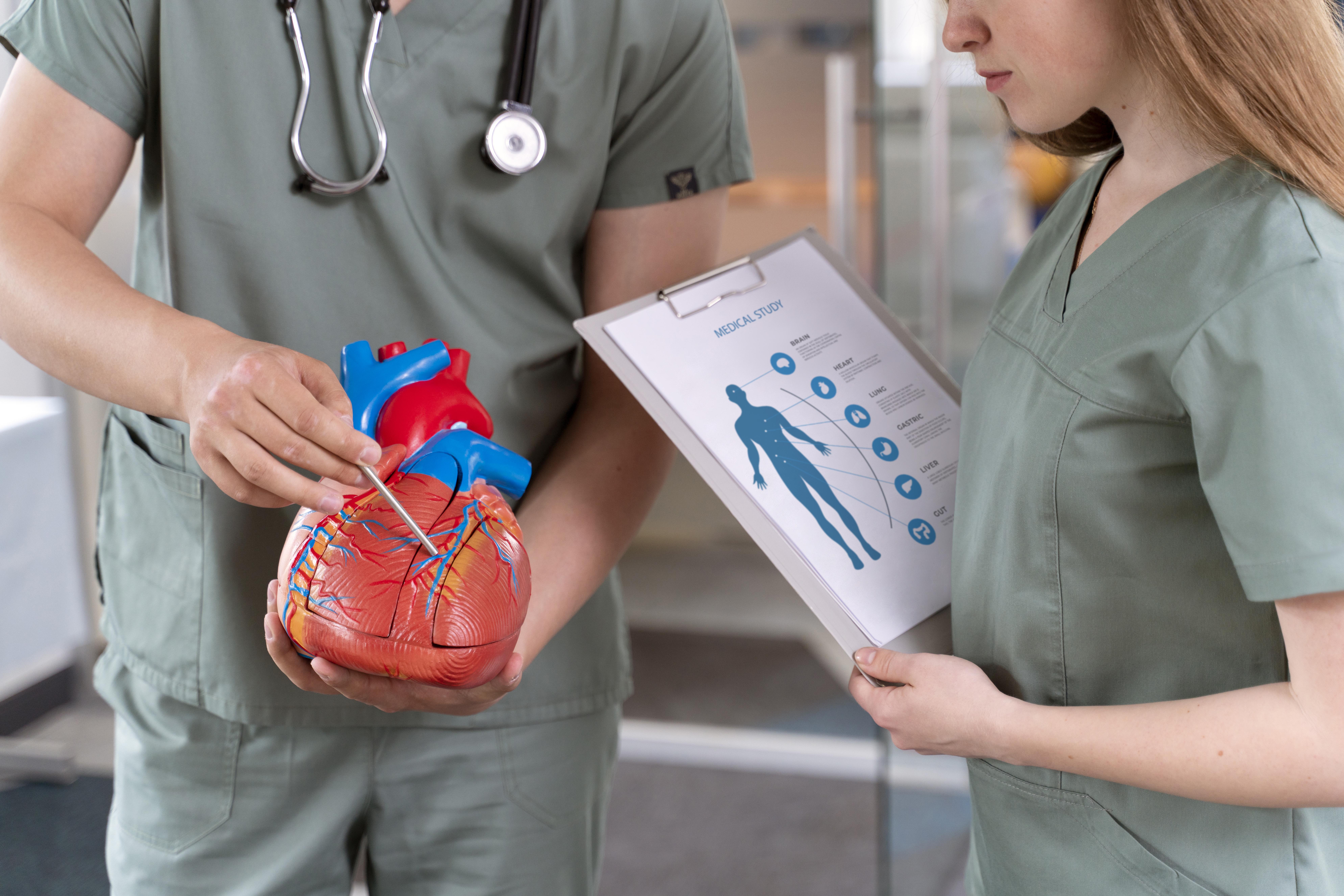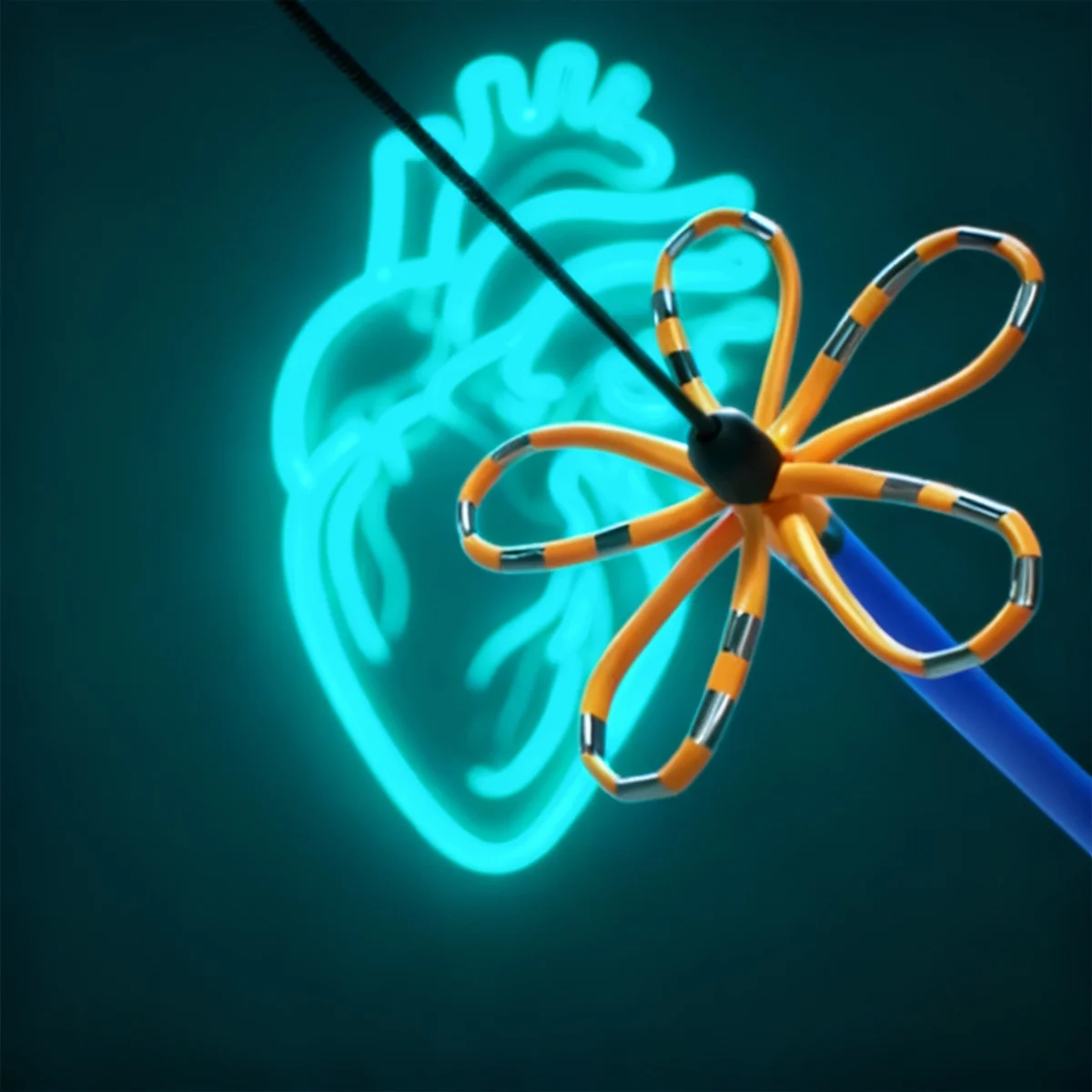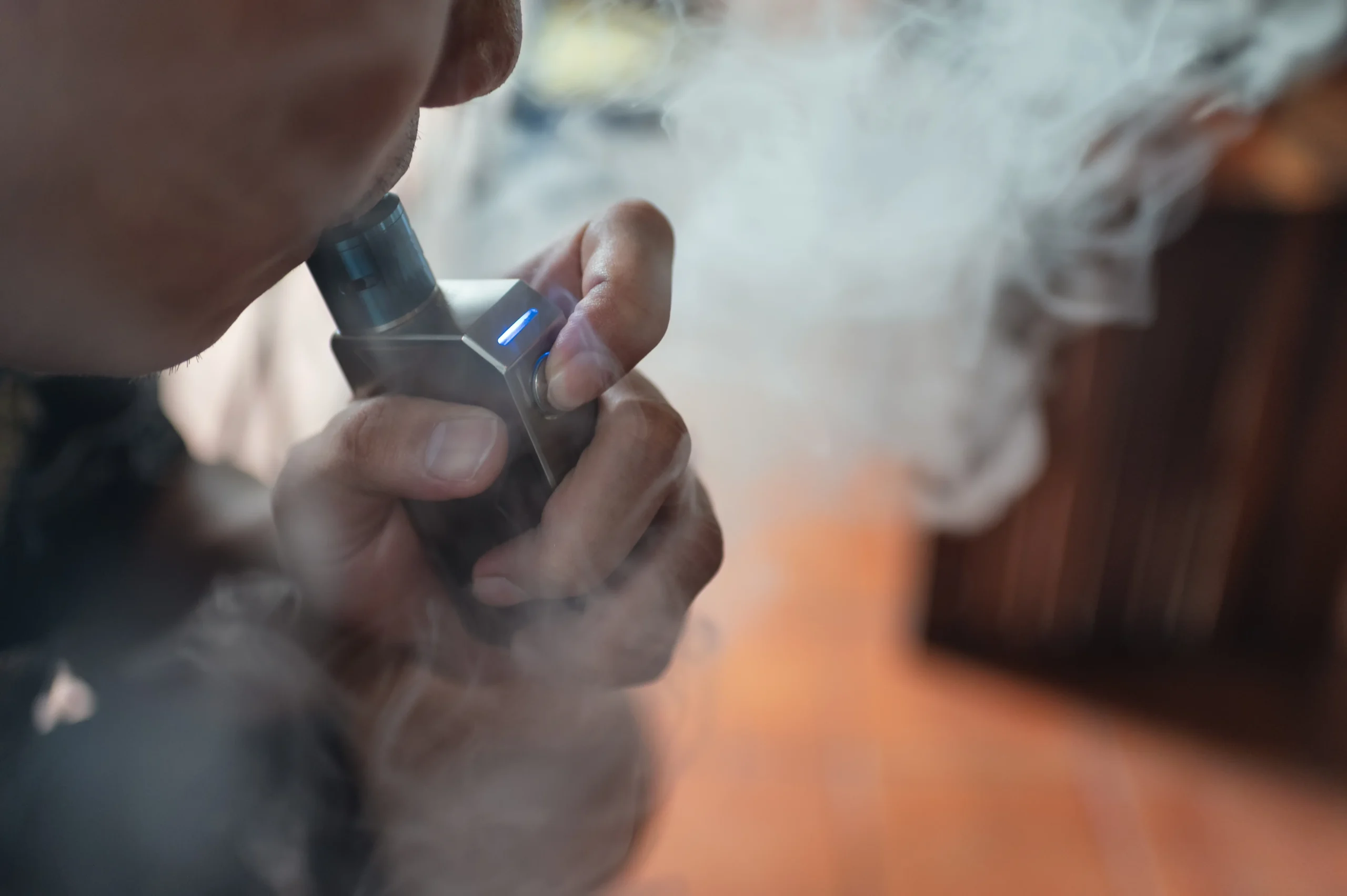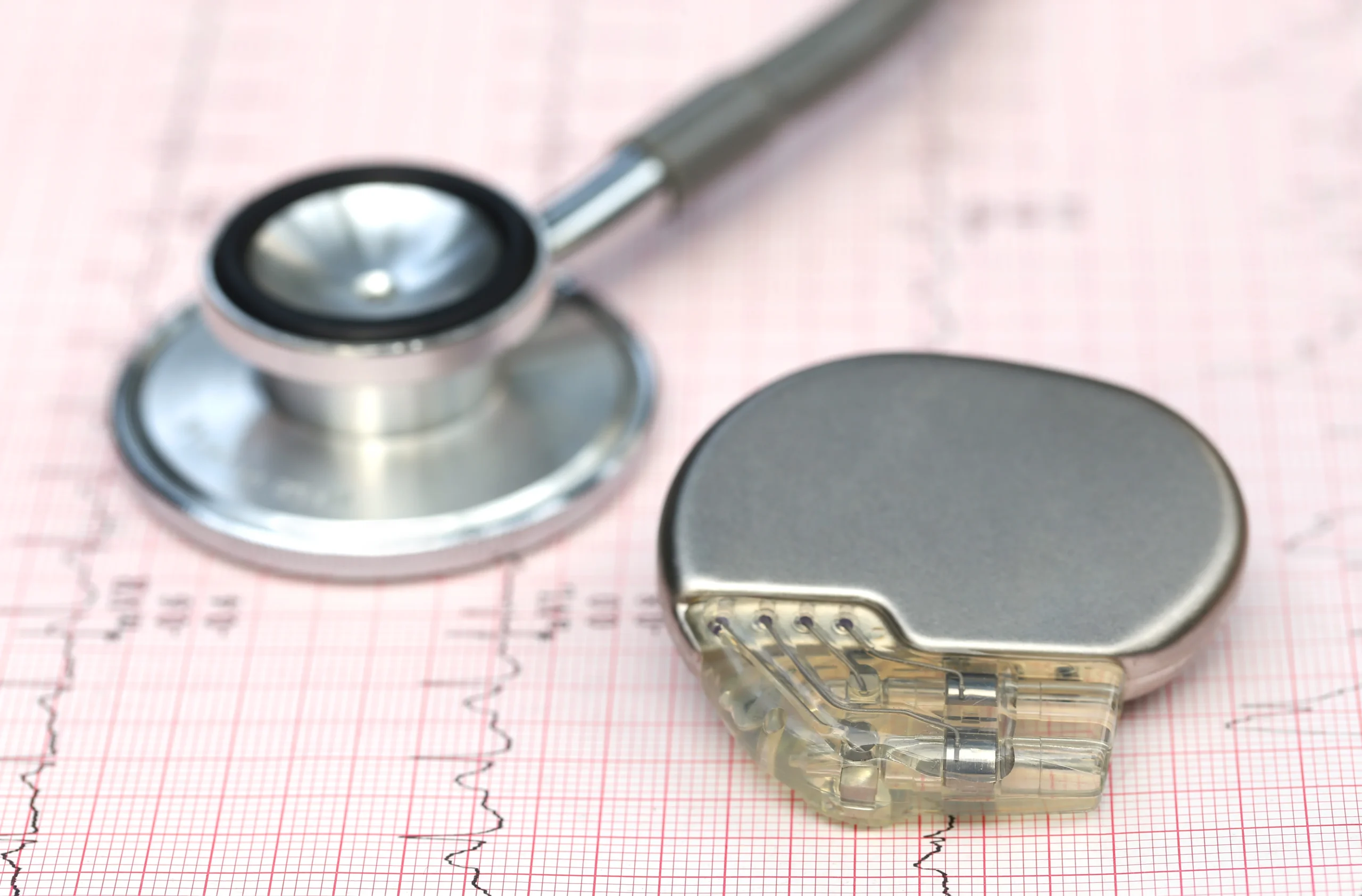Atrial fibrillation is a common heart condition that causes the heart to beat in an abnormal way. If you have “AFib”, your heartbeat becomes irregular, chaotic and, often, too fast. This puts the heart under more pressure than expected, which can potentially be dangerous.
Atrial fibrillation can often be controlled by medication or by a treatment called cardioversion. But if these don’t have the desired effect, we might recommend you for an atrial fibrillation ablation, also called cardiac ablation. This is a common operation that aims to restore the heart’s natural rhythm by targeting the small areas of the heart that typically cause the problem.
As one of Dublin’s most experienced cardiologists, Dr Lyne is a leading expert in diagnosing and treating atrial fibrillation. It’s quick and simple to book a consultation with him here at Heart Rhythm Cardiologist. Just call us on 01 690 8350, send the team an email, or book online.
What is atrial fibrillation?
Atrial fibrillation – also known as AFib or AF – is a type of heart rhythm problem (arrhythmia). It’s the most common arrhythmia in Ireland and, though it can happen to adults of all ages, it becomes more prevalent as we get older. The Irish Heart Foundation estimates that 1 in 4 people over the age of 50 are at risk of developing AFib.
But what exactly is atrial fibrillation? As the name suggests, the problem begins in the atria (the chambers at the top of the heart). Normally, the tiny electrical signals that control your heart rhythm pass through the atria in a regular, orderly way, causing the heart to contract at around 60-100 beats per minute.
In AFib, the signals go slightly crazy. The atria begin to quiver (“fibrillate”), the heart rate rises beyond 100 beats per minute (though, in rarer cases, it can become too slow), and the upper and lower chambers no longer work together in an orderly way. This puts the heart under strain and stops it from pumping so efficiently, which in turn raises the risk of blood clots and stroke.
People often develop atrial fibrillation without realising it. But AFib can cause a range of unpleasant symptoms too. These include:
- Palpitation, or a fluttery feeling in the chest
- Fatigue
- Dizziness
- Lightheadedness
- Breathlessness
- Pain, pressure or discomfort in the chest*
* Because chest pains can be a sign of a heart attack, they should be treated as a medical emergency. (For a more detailed look at the causes and symptoms of AFib, you may find this blog helpful: What is Atrial Fibrillation?)
What is Atrial Fibrillation Ablation?
Cardiac ablation for AFib is a treatment that targets the areas in the atria where the electrical impulses become random and chaotic. It’s sometimes also known as catheter ablation, cardiac ablation or radiofrequency ablation. Ablation (the word means “to remove”) uses a controlled blast of energy to create tiny scars in the heart tissue. This stops – i.e. removes – the rogue impulses and, if successful, enables the heart to return to its normal rhythm. The goal of ablation is to stop the symptoms of AFib and reduce the risk of blood clots, heart failure, or a stroke.
How Does Heart Ablation Work?
The most common type of atrial fibrillation ablation is done with catheters. A catheter is a long, soft, tube-like wire that’s so thin it can easily pass through a vein or artery and up into the heart. To do this, the consultant makes a small incision in your groin. The wires are then passed up the blood vessel until they reach the inside wall of the atria. The sensitive tips of the catheters enable the discovery of where the rogue signals are coming from (this is known as an electrophysiology study (EPS).
Once the precise areas have been located – it’s usually just half a centimetre or so in diameter – the consultant can target it with a controlled surge of energy, which is delivered through the wires. Depending on your condition, this could be either:
- Heat energy – also known as radiofrequency energy
- Cold energy – also known as cryoablation
- Electrical shock therapy – pulsed field ablation
Each type has the same goal: to create tiny scars in the areas that are producing the faulty signals. This disconnects the electrical pathway of the abnormal rhythm, blocks the abnormal pulses or promotes normal conduction of impulses, or disconnects the electrical pathway between the atria and the ventricles.
There is another type of ablation called the Maze procedure, which is often performed as open-heart surgery.1 But this is much less common than standard catheter ablation.
How Long Does it Take to Do a Cardiac Ablation?
The length of a cardiac ablation varies from patient to patient. Some can be performed quite quickly. Others can take a few hours. We can give you an indication of this when we go through everything together before your operation.
Afterwards, the wires are removed and you’ll be taken back to the ward to rest. For the next few hours, you’ll need to lie still to prevent strain on your groin. Some patients stay in the hospital overnight, but it’s often possible to go home the same day. Bear in mind, though, that you won’t be able to drive for 48 hours after the procedure, so it’s important to arrange for someone to collect you from the hospital.
Is Cardiac Ablation Safe?
Like all medical procedures, heart ablation comes with a small amount of risk. There may be minor bleeding in the area where the catheters were inserted and some bruising. To avoid infection in the days after the procedure, you should keep an eye on the wound and contact a doctor if you notice any redness or swelling. With ablation, there’s also a small risk of damage to the heart’s normal electrical pathways. If this were to happen, it might be necessary to have a pacemaker or an internal defibrillator (ICD) fitted to correct the problem.
But, with all that said, complications from a cardiac ablation are rare. Ablation is a common procedure and is considered to be a safe and effective treatment for atrial fibrillation. Most patients find the outcomes to be very good, too. According to the Irish Heart Foundation, “the success rate of ablation for the great majority of fast heartbeats is 95 to 98%.”
How Long to Heal After Heart Ablation?
Most patients recover quickly after the procedure. You may get some mild symptoms for the first few days, such as bruising around the area where the catheter was inserted.3 Some people experience heart-related symptoms such as palpitations, ectopic beats, or a fast heart rate. However, these symptoms generally settle down, and most patients find that they can return to normal activities within a few days.
To help your cardiac ablation recovery, there are a few things you should avoid doing after the procedure; for instance:
- Driving – don’t drive for two days after your ablation
- Lifting – avoid heavy lifting for at least the first two weeks
- Exercise – avoid strenuous exercise for around a fortnight
It’s also worth noting that the benefits of ablation can take some time to kick in. Our team will stay in touch with you after the procedure so we can check on your progress and provide more help if you need it.
Cardiac Ablation with Dr. Jonathan Lyne
If you need advice or reassurance about cardiac ablation, we’d love to help. Heart Rhythm Cardiologist is one of Ireland’s leading practices for the treatment of AFib, and we offer the full range of diagnostic tests, medication and procedures to help people to manage and treat the condition. Dr. Lyne was also one of the first cardiologists in Ireland to use “pulsed field ablation”, a new technology that has been going through trials in Europe and America.
Heart ablation isn’t always the right choice for everyone. But for many people who do suffer with AF, it can be genuinely transformative. As Neil, one of our past patients, put it: “It’s been 18 months since my ablation and things couldn’t be better. Living with atrial fibrillation was tough but this […] has changed my life. I’m forever grateful. Thanks, Dr Lyne and team.”
Need to book an appointment to discuss ablation? You can contact Heart Rhythm Cardiologist by phone or email, or by booking a consultation online on our website. Whatever you need, we’re here to help.






